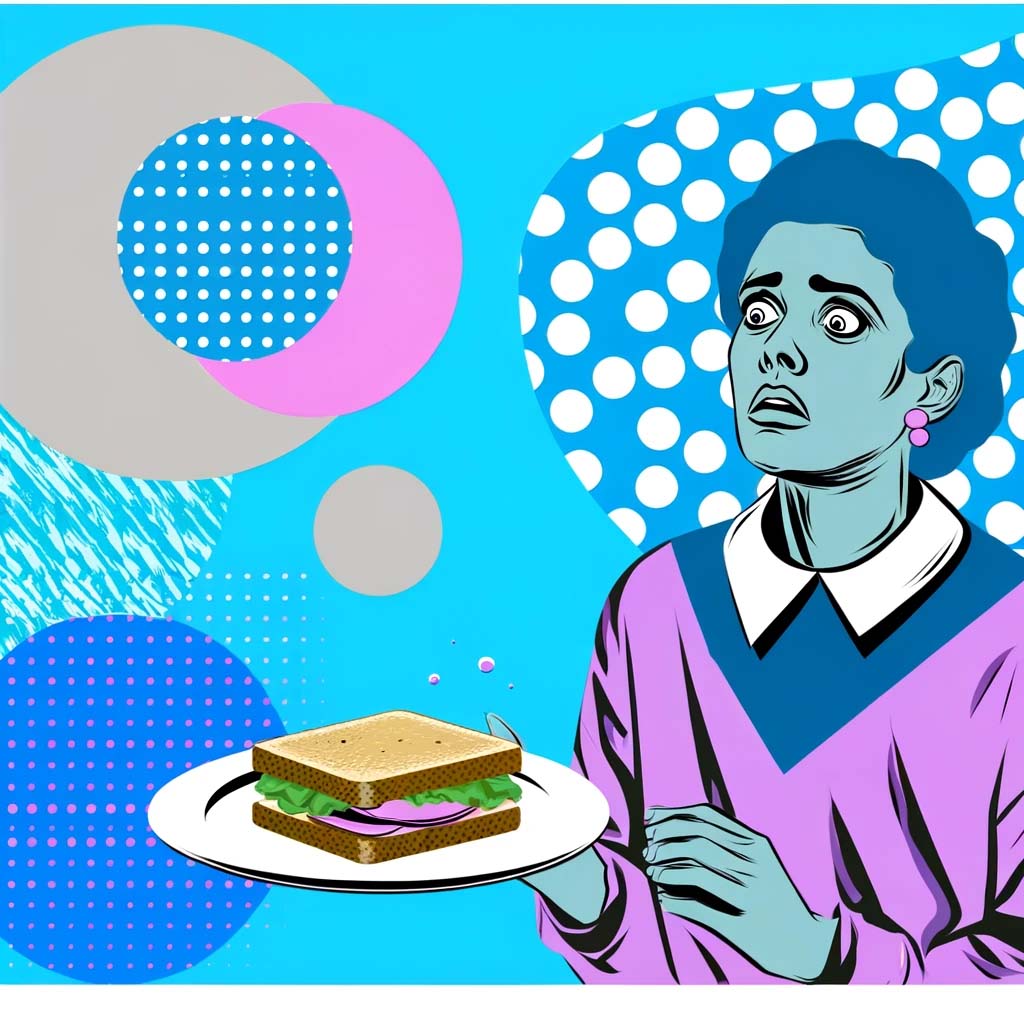Emetophobia, the intense fear of vomiting, extends far beyond a simple aversion. It’s a complex phobia with a profound emotional impact on those who live with it. While the fear of getting sick is central, the true toll of emetophobia lies in the tangle of shame, isolation, and constant fight-or-flight tension that permeates everyday life.
The Weight of Shame
Emetophobia thrives on secrecy. Many sufferers feel deeply ashamed of their phobia. Society often misunderstands or minimizes anxiety disorders, leading to a sense of inadequacy or a belief that their fear is irrational and embarrassing. This shame fuels a cycle of hiding the depths of their struggle, perpetuating a sense of profound isolation.
Anxiety’s Constant Companion
The fear isn’t confined to moments of nausea or potential illness. For many with emetophobia, the anxiety is a constant hum in the background, sometimes roaring into full-blown panic. This chronic anticipation of something terrible about to happen takes a toll on mental and physical health. Common impacts include:
- Hypervigilance: An over-awareness of bodily sensations becomes the norm. A minor stomach gurgle can escalate into panic, convinced that sickness is inevitable.
- Difficulty Concentrating: When your brain is constantly scanning for threats, it’s hard to focus on work, studies, or enjoy simple pleasures.
- Exhaustion: Being on constant alert is draining. This can lead to sleep issues, amplifying the cycle of worry and fatigue.
Social Withdrawal and Lost Opportunities
The fear of vomiting in public, around friends, or away from the safety of home leads many with emetophobia to withdraw and avoid. This could manifest as:
- Avoiding Eating Out: The fear of food poisoning, unfamiliar foods, or being sick in a restaurant can turn a simple social outing into a source of dread.
- Travel Anxiety: Travel, even short distances, can be overwhelming due to the fear of being ill in unfamiliar places, motion sickness, or being away from the perceived safety of home.
- Declining Social Invitations: Parties, concerts, or other gatherings often induce anxiety around the possibility of witnessing others get sick or contracting an illness oneself. This can lead to missed opportunities and increasing loneliness.
When Fear Dictates Choices
In severe cases, emetophobia can infiltrate nearly every life decision:
- Restricted Diet: Eating may become dominated by ‘safe foods,’ even if leading to nutritional deficiencies. The fear of potential illness overshadows the joy of food.
- Career Impact: Some may avoid jobs that involve travel, social events, or perceived illness risks, limiting their professional growth.
- Relationship Strain: Partners, friends, and family, though well-meaning, may not fully grasp the depth of the fear, leading to frustration and misunderstanding.
The Emotional Toll
The constant battle with emetophobia can chip away at self-esteem, increase anxiety in other aspects of life, and contribute to the development of other mental health conditions. Some common emotional consequences include:
- Loss of Control: Emetophobia can feel like a force beyond your control, making it difficult to trust your own body and sensations.
- Depression: The restriction, social isolation, and feeling of being trapped by fear can contribute to feelings of hopelessness and depression.
- Self-Criticism: The internal voice can become harsh, filled with messages of weakness or inadequacy for not being able to “just get over it.”
The Path to Healing
Let me be clear: Emetophobia is a real and treatable anxiety disorder. While the process isn’t always easy, help is available:
- Therapy: Cognitive Behavior Therapy (CBT) and exposure therapy are powerful tools to challenge negative thoughts, learn healthy coping skills, and gradually face fears in a safe environment.
- Support Groups: Connecting with others who understand shatters the isolation and offers validation and practical coping tips.
- Medication: In some cases, medication can alleviate severe anxiety symptoms, creating space to focus on therapy and skill-building.
A Note of Hope
The emotional weight of emetophobia is undeniable, but so is the resilience of those who face it. Seeking help is a sign of strength. As you begin to reclaim control over your fears, freedom awaits. Imagine a life less dictated by anxiety, where social interactions, joyful experiences, and a renewed sense of self are possible. Take that first step today.
Disclaimer: This article is for informational purposes and should not replace professional guidance.





0 Comments